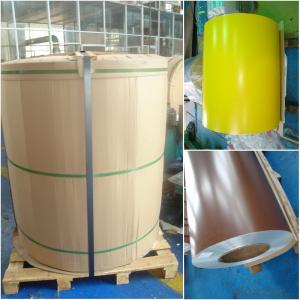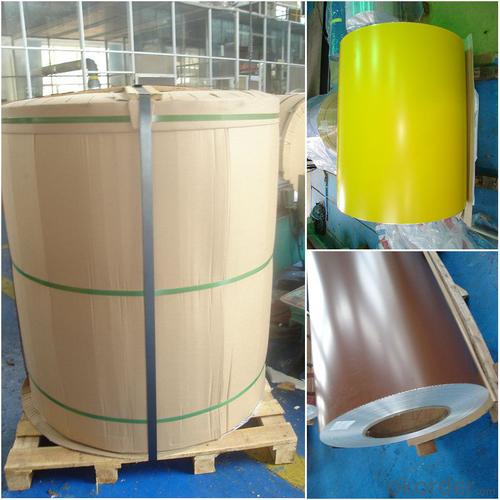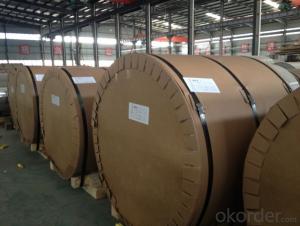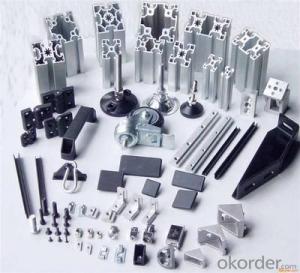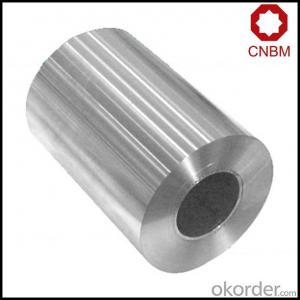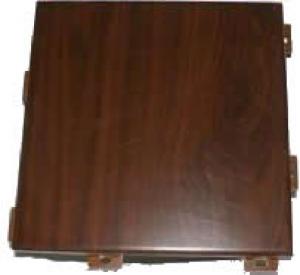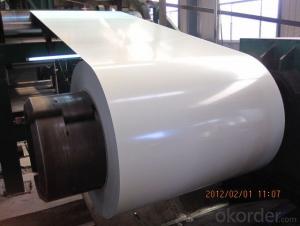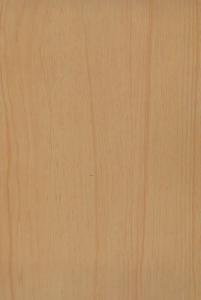Wood Grain Aluminum Coil - Eye to Sky Package Aluminum Coating Sheet Rolls
- Loading Port:
- China Main Port
- Payment Terms:
- TT OR LC
- Min Order Qty:
- -
- Supply Capability:
- -
OKorder Service Pledge
OKorder Financial Service
You Might Also Like
Color coated aluminum coil is a material with excellentacid-resistance and alkali-resistance. The coating layer is even with brightcolor to last for a very long time. It is a green decoration material with thecharacters of environment protection, flame-resistance, and groovy colors. In nowadays, the color coated aluminum coil has become the popularmaterial for top grade decoration. With our advanceprofessional aluminum coated technique, we can custom various aluminum coils,like coated aluminum coil , Color coated aluminum coil , embossed aluminumsheet with the color and size which you demands.
1) Process: pre-treatment,continuous painting and baking for times .
2) Material: high qualitymaterial, aluminum sheets from South West Aluminum Industry Company in China,pre-treatment material from Henkel & Chemtell from Germany, more than 70%of PVDF coating from PPG Corp., the USA and polyester from Sweden BeckerIndustrial Coating Co., Ltd.
3) Our products can keepexcellent quality and stability.
4) Thickness: 0.06 - 1.0mm;width: 20 - 1,590mm
PE Aluminum Coating Coils for ACP
Features of PE Aluminum Sheet:
1. Adopting precision rolling coatingtechnology, our PVDF and PE coated coil can ensure excellent adhesive withoutcoating omission.
2. For the PE coated aluminum coil weproduced, there are various colors for your choice.
3. Using infrared heating technology toprotect environment from pollution.
4. Our coated aluminum coil has four-rollercoating line, uniform coating thickness and good features.
RawMaterial of the PE Aluminum Coating Coils:
1.Aluminum Coil: high strength aluminum with alloy of AA1100 (aluminum alloy isavailable with AA3003, AA3005, AA5005 according to customer)
2. SurfacePaint: PE, PVDF and special paints.
Specificationof PE Aluminum Coating Coil
Width:20mm~1590mm
Thickness:0.06mm~1.0mm
ExternalDiameter: ≤ 1500mm
InternalDiameter: 405mm, 505mm, 150mm, 75mm
Coilweight: ≤ 4000kg
PE coatedaluminum coil is processed through the technics of roller coating and bakingwith precise polyester paints. Its color is glossy and with variety of colorsenabling you to choose easily. Chromatic aberration is small, impact resistanceis strong and easy to be processed, and all its performance has reached orsurpassed the national criteria. The products are widely used in indoor anddoor decoration, ceilings, room surface tiles, corrugated boards, wall panels, advertisement boards, counters,home appliances, decoration in and out of autos and boats.
Performanceof the coating
Aluminum Thickness | Coating Thickness | MEK | T- Bend | Impact | Adhesion | Pencil Hardness | Boiling Water Proof |
0.3-1.5mm | ≥18μm | ≥100 Times | ≤2T | 50 kg•cm | 0 Grade | ≥HB | no change within 2 hours |
0.2-0.28mm | ≥18μm | ≥100 Times | ≤2T | 30kg•cm | 0 Grade | ≥HB | no change within 2 hours |
0.15-0.18mm | ≥18μm | ≥100 Times | ≤3T | 20 kg•cm | 0 Grade | ≥HB | no change within 2 hours |
0.08-0.12mm | ≥16μm | ≥80 Times | ≤4T | 10 kg•cm | ≤1 Grade | ≥HB | no change within 1 hour |
0.022-0.06mm | ≥12μm | ≥50 Times | - | - | ≤1Grade | ≥HB | no change within1 hour |
Colorof Card
PE (polyester)
PE
ColorMatch
For custom' color requests, we can deal as following:
1. Supply a physical sample of custom color. A color sample on metal ispreferred. If other, it is also acceptable. But the color matching rate may benot good as color on metal.
2. New color sample is usually offered by our paint supplier in 5-7 days,special color should be in 7-10 days.
3. Upon receipt of color sample, please approve in writing as soon as possible.Once you approved, we will arrange purchasing and production.
Note: Color difference maybe occurred in different production batch, so it issuggested all panels are placed in one order for same project. And keep samedirection as arrow on protective film when installing to avoid any colordifference by vision
Applications:
The aluminum coils are widely used in ACP/curtain panel/honey combpanel/shutter/roofing and most of the decoration areas. With the superiorquality and advanced management, our products had been export to Euro/NorthAmerica /East Asia and many other areas and countries.
- Q: Is it possible to utilize aluminum coil in the welding process?
- <p>Yes, aluminum coil can be used for welding. It is commonly used as a filler material in processes like MIG (Metal Inert Gas) welding, where it is fed continuously into the weld pool to create a joint. Aluminum welding requires specific techniques and equipment due to its high thermal conductivity and the need to prevent oxidation. The aluminum coil must be of high quality and clean to ensure a strong, corrosion-resistant weld.</p>
- Q: Can aluminum coils be used in the production of cryogenic storage tanks?
- Cryogenic storage tanks can incorporate aluminum coils, as aluminum is a suitable material for such purposes. This is due to its low density, high thermal conductivity, and excellent resistance to corrosion. These attributes make it an excellent choice for the storage and transportation of cryogenic liquids like liquid nitrogen, oxygen, and argon. Aluminum coils can be utilized to construct the internal shell of the tank, which offers a lightweight and durable solution. Moreover, aluminum is highly malleable, enabling the creation of intricate tank shapes and designs. However, it is crucial to consider that aluminum has a higher coefficient of thermal expansion compared to materials such as stainless steel. Therefore, adequate design measures must be implemented to accommodate thermal contraction and expansion during cryogenic operations.
- Q: Can aluminum coils be used in solar energy systems?
- Yes, aluminum coils can be used in solar energy systems. Aluminum is a commonly used material in the construction of solar panels and solar energy systems due to its excellent properties. Aluminum coils are lightweight, durable, and have excellent thermal conductivity, making them ideal for transferring heat away from the solar cells. Additionally, aluminum is resistant to corrosion, which is crucial for outdoor applications where solar panels are exposed to various weather conditions. The use of aluminum coils in solar energy systems helps improve the overall efficiency and lifespan of the panels, contributing to the effectiveness and sustainability of solar energy generation.
- Q: How do aluminum coils contribute to the corrosion resistance of marine applications?
- The corrosion resistance of marine applications is greatly improved by aluminum coils, thanks to the unique properties and characteristics of aluminum as a material. To begin with, aluminum naturally forms an oxide layer on its surface when it comes into contact with air. This oxide layer is highly resistant to corrosion and acts as a protective barrier to prevent further oxidation and corrosion of the metal. This inherent property of aluminum makes it an excellent choice for marine applications, where constant exposure to saltwater and moisture can be extremely corrosive. In addition, aluminum coils can be alloyed with elements like magnesium and manganese to further enhance their corrosion resistance. These alloying elements not only strengthen the aluminum but also improve its resistance to pitting and crevice corrosion. Pitting corrosion occurs when localized damage exposes the underlying metal, while crevice corrosion occurs in areas with restricted oxygen flow, such as gaps or joints. By alloying aluminum, the coils become more resistant to these types of corrosion, making them highly suitable for marine environments. Furthermore, aluminum coils can be coated with protective finishes such as anodizing or painting, which provide an extra layer of defense against corrosion. Anodizing involves creating a thicker and more durable oxide layer on the aluminum surface, thereby increasing its resistance to corrosion. On the other hand, painting acts as a physical barrier that shields the coils from direct contact with corrosive elements present in the marine environment. In conclusion, aluminum coils contribute to the corrosion resistance of marine applications through the presence of a natural oxide layer, alloying with other elements, and the option of protective finishes. These characteristics ensure that aluminum coils are highly durable and capable of withstanding the challenging conditions encountered in marine environments, guaranteeing their longevity and reliability.
- Q: Describe the manufacturing steps involved in producing aluminum coils.
- <p>The production processes of aluminum coils involve several key steps. Initially, aluminum ingots are melted in a furnace. The molten aluminum is then transferred to a casting machine where it is cast into a continuous strip. This strip is cooled and passed through a series of rollers to reduce its thickness and achieve the desired coil gauge. The rolling process can be hot or cold, depending on the final product's properties. After rolling, the aluminum coil may undergo annealing to improve its ductility and strength. It is then cleaned, oiled, and wound into coils. Quality control checks are performed throughout the process to ensure the coils meet specific standards. Finally, the aluminum coils are packaged and shipped for various applications such as construction, automotive, and packaging industries.</p>
- Q: What are the potential health risks associated with aluminum coils?
- The potential health risks associated with aluminum coils primarily revolve around exposure to aluminum particles, which can occur through inhalation or ingestion. Prolonged exposure to these particles may contribute to respiratory issues such as asthma and lung inflammation. Additionally, there is some concern about the potential connection between aluminum exposure and Alzheimer's disease, although more research is needed to establish a conclusive link. To mitigate these risks, it is advisable to ensure proper ventilation, minimize direct contact with aluminum surfaces, and maintain good cleaning practices to reduce the likelihood of particle release.
- Q: Will the aluminum braking surface dissipate heat evenly allowing for fast stops from fast descents or will I have to still pulsate braking to reduce heat build up in the tires and tubes?
- Aluminum works just fine. Basalt is overkill for this application. Aluminum has been used on many applications for its heat dissipating properties such as heatsinks, radiator fins etc. Regardless of wheel material, pulsate braking is a technique used to control downhill speed.
- Q: Can aluminum coils be painted?
- Yes, aluminum coils can be painted. Painting aluminum coils can provide an added layer of protection against corrosion and enhance their aesthetic appearance. However, it is important to properly prepare the surface before painting to ensure good adhesion and durability. This typically involves cleaning the coils thoroughly, removing any existing paint or coatings, and applying a primer specifically designed for use on aluminum surfaces. Once the primer has dried, a suitable paint can be applied using a brush, roller, or spray. It is recommended to use a high-quality paint specifically formulated for use on metal surfaces to ensure long-lasting results. Additionally, it is important to follow the manufacturer's instructions and consider any environmental factors that may affect the painting process, such as temperature and humidity.
- Q: What are the fire-resistant properties of aluminum coils?
- Aluminum coils possess excellent fire-resistant properties due to their high melting point, which is approximately 660 degrees Celsius or 1220 degrees Fahrenheit. This makes them less likely to ignite or contribute to the spread of fire. Additionally, aluminum's low flammability and ability to dissipate heat quickly help to minimize the risk of fire-related accidents.
- Q: What are the potential fire hazards associated with aluminum coils?
- Aluminum coils present various fire hazards that need to be addressed. The primary concern is the high flammability of aluminum, making it susceptible to catching fire easily and burning rapidly. This poses a significant danger if there is a nearby ignition source, such as an open flame, electrical spark, or hot surface. Another fire risk arises from the accumulation of dust, dirt, or other combustible substances on the aluminum coils. These materials can serve as fuel for a fire, raising the probability and intensity of combustion. To prevent the buildup of such substances, it is essential to regularly clean and maintain the coils. Improper installation or maintenance of aluminum coils in HVAC systems can also result in fire hazards. Inadequate fastening or loose electrical connections can lead to overheating and potentially spark a fire. Moreover, if aluminum coils come into contact with live electrical wires or experience a short circuit, electrical fires can occur. This may happen if the coils are installed too close to electrical components or if there are issues with the insulation or grounding of the system. Furthermore, the use of flammable refrigerants in HVAC systems heightens the fire risk associated with aluminum coils. Leaks or malfunctions in the refrigerant system can create a flammable environment around the coils, potentially causing a fire or explosion. To mitigate these fire hazards, it is crucial to adhere to proper installation guidelines, regularly inspect and maintain the coils, keep the surrounding area free from combustible materials, and ensure there are no electrical or refrigerant leaks in the system. Additionally, it is advisable to have fire detection and suppression systems in place to promptly respond to any potential fire emergencies.
Send your message to us
Wood Grain Aluminum Coil - Eye to Sky Package Aluminum Coating Sheet Rolls
- Loading Port:
- China Main Port
- Payment Terms:
- TT OR LC
- Min Order Qty:
- -
- Supply Capability:
- -
OKorder Service Pledge
OKorder Financial Service
Similar products
Hot products
Hot Searches
Related keywords
